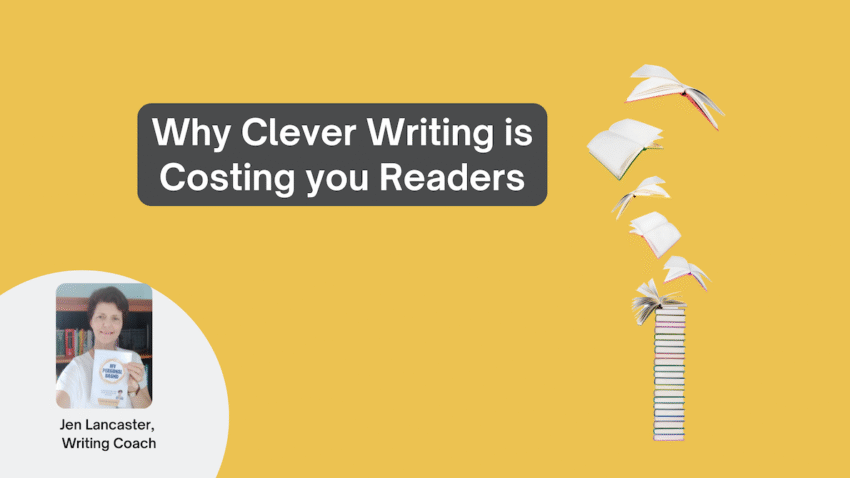Say you’re writing a book. Do you sometimes think to yourself: What if it all goes wrong? What if I can’t write a book that gets the reader past the free preview? What if it doesn’t hold their attention as it’s just too dense?
These are valid concerns. After all, the person who ends up reading your new book is likely to be an avid reader and so is not going to enjoy a repetitive, cliché-ridden, same old, same old book.
My point is, if you want your book to be read, think about the quality of your writing. Think about doing original research. Instead of clichés, think about using original metaphors, similes, and allegories. Instead of lecturing, as many new writers seem to do, try to create a picture in their minds. You can do this easily through a story – it doesn’t even have to be a true story, as long as it’s based on an amalgamation of your observations.
Some novice book authors like to pack all their themes and knowledge in one book. But this is not ideal as it does not follow the “Single Theme” rule (see below about this). If quite a few chapters have already been written, this may involve a lot of editing work to fix it. For the author, it’s a bit unexpected when editors must change entire chapters and rearrange topics in the developmental stages of a book. It could easily be disheartening for the novice writer.
It can also get expensive, with more hours needed in order to get the good juice and pare back the theme.
What is a more effective — and considerably cheaper solution — is planning the book alongside a book writing expert, right from the start. A writing coach to help you write a better book.

First-time book writer? There’s a new guide: How do I write a book? right on this website.
What does an Editor do?
If your writing gets further along, say you’ve written 45,000 words, but the flow starts to get too confusing, you can hire an editor for a structural edit. If they do the unravelling, this restructuring/redeveloping work may take many, many hours.
If capable, you could instead take action on the expert advice from your editor. A developmental edit or manuscript assessment incorporates a read-over, commenting on parts where it repeats or may not need to be there, and a developmental report. Then you do the work! It’s usually about $400 — unless it’s longer than that Ben Hur movie.
Most writers need help with the structure at some point. Then there is the copy-editing round.
A copy editor needs to read every word on every page, including the words the writer left out by mistake, along with punctuation. They should check sources and facts. A simple copy-edit of 50,000 words (where the structure was perfect) took me 22 hours, with formatting. A long and complex book edit (two reads) took me 86 hours, with quite a few one-pass edits hovering around 40 hours. So there really is no ‘average’ here.
So, we are already up to two editing rounds on a medium-length book and 50 intensive hours for the editor to identify various issues, amend the spelling, grammar, voice, punctuation and clarity, and read over the manuscript. It could be longer if the editor includes comments to help the author understand why changes are needed.
Even though editors do not make a lot of money per hour, on a 180-page business book this typical process would be nearing $3,500 in potential editing costs (50 x $65 very roughly). Asking a friend to do this is like asking them to paint the entire outside of your house and while they’re there, fix the fence!
What is a Single Theme?
This theme – and its intended narrow audience – is worked out in advance, at the outlining stage. Sometimes the chapters can change and morph, but with the outline and a coach, you are not in the dark wondering if you said that topic before.
Along with improving the overall structure, a writing coach will usually become a teacher of better writing techniques. She may point out ways to finish a chapter that creates some curiosity for the next chapter.
Repetition of a subject matter can be a tricky one; a writing coach may suggest the reader can hold the stories in their mind quite well, so stories should not be repeated. However, some repetition in the form of different ways to say largely the same thing might be okay. It is only through experience that one can know the difference.
It is this tender, guiding hand that you need when you write a book. A hand such as my own, which has written six books and over 230 articles. A hand that has edited hundreds of thousands of words, all lined up like pretty pegs on a line. This guiding hand would like to guide your writing… so your book can speak to others.
Support means you can write a better book – from your typed notes or transcribed words – so you’re not dithering for months. Harsh, but true.
When an Editor Becomes Your Coach
Do you want to struggle through all the early stages of book writing and creation yourself? If you are struggling, you can hire a non-fiction writing coach and get all the way to a finished manuscript.
When you hire a trained editor as your writing coach, you get help in creating the logical flow of chapters, of the right length, that will fit the theme of your book.
Our writing coaching is designed to be a value-packed offering, as it includes guidance on publishing and final round of copy editing.
Jennifer Lancaster Writing Coach offers a book writing coaching program (Business Author Academy) ranging from $3,300 to $4,500 to get your entire manuscript finished to a presentable state. It includes fortnightly coaching sessions, to keep you on track, a schedule, intensive editing and overarching feedback on your work.
In the Establish Book Development program, with bonus self-publishing mentoring for Kindle and access to the Book Creation Self-Publish course, plus another filmed masterclass on launch marketing. Download the Establish Brochure, with instant access.









